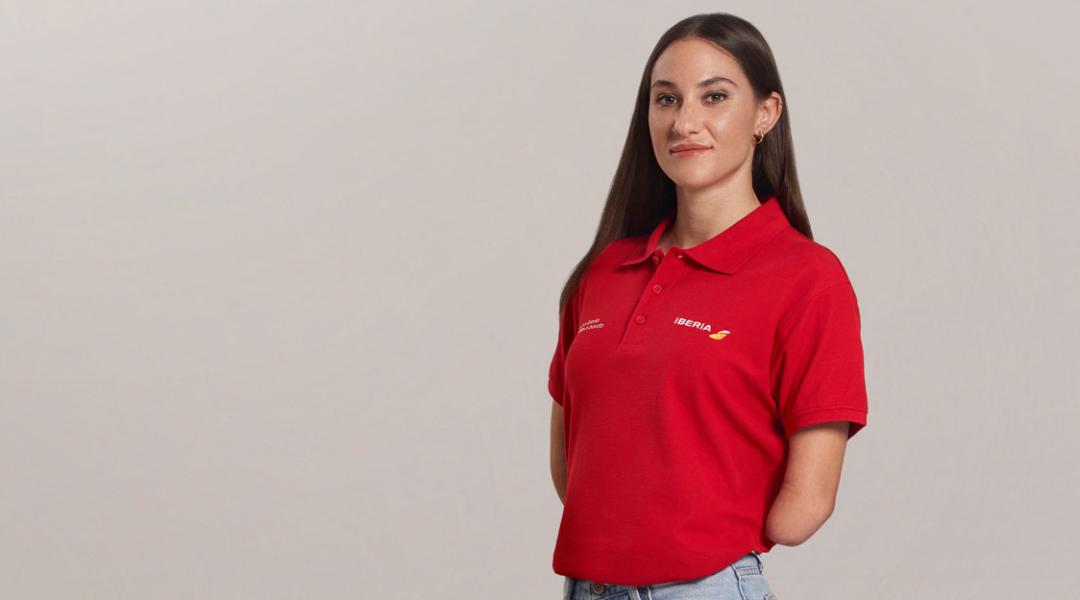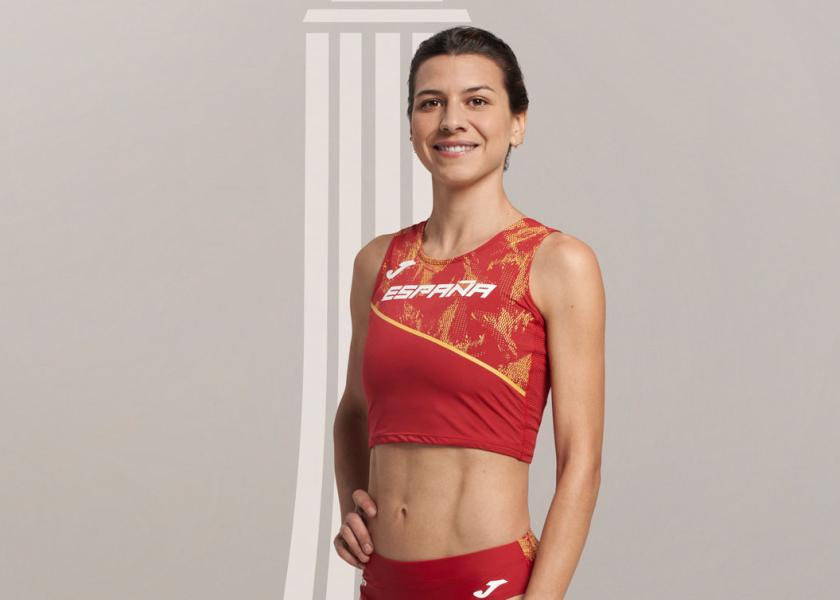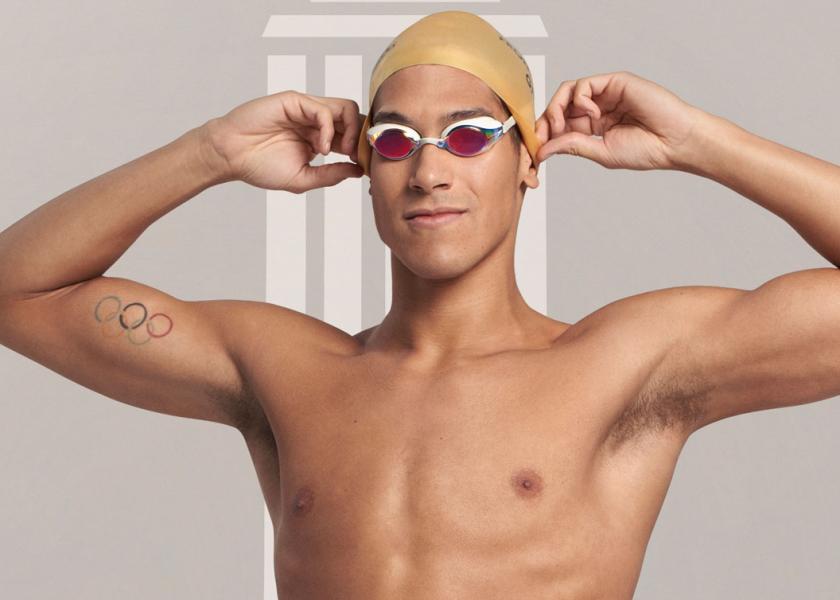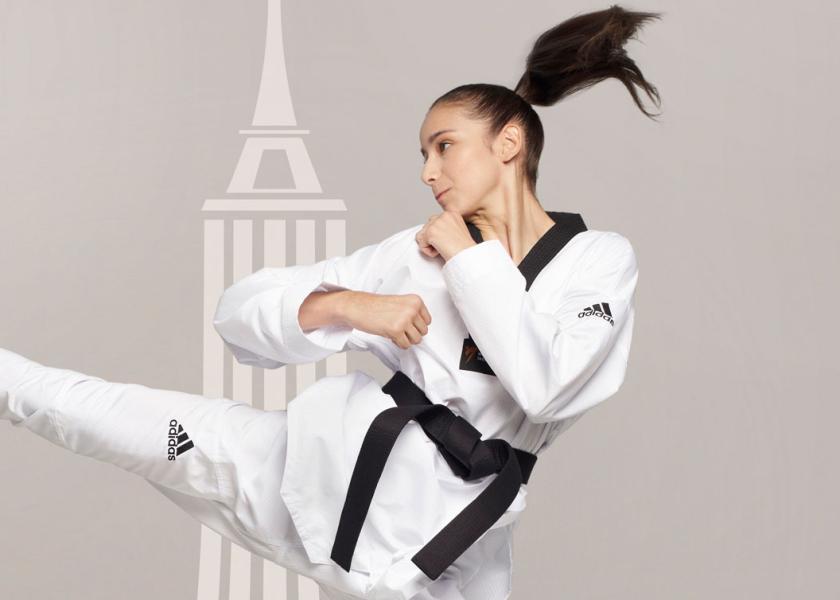Sarai Gascón
The medal collector

Paralympic swimmer Sarai Gascón has added four more medals —one gold and three bronze— (and counting) to her extensive collection during the recent World Championships held in Manchester. Her next goal? Winning the gold in Paris. After six Paralympic silver medals and two bronze medals, this swimmer from Terrassa, who became the town’s councillor for Sports in June, admits that this is a dream she’d love to come true.
“I’ve always resolved to not let my disability slow me down.” At this stage in the game, we can confirm that Sarai Gascón (Terrassa, 1992) has kept that promise she made herself when she was practically still a child. But this Paralympic swimmer doesn’t settle. In fact, during the World Championships held at the beginning of August in Manchester (England), she added four medals to her vast track record: gold in mixed 4x100 medley relay, bronze in 100 breaststroke, bronze in 200 medley, and bronze in mixed 4x50 medley relay. “The truth is that I’m super happy and super proud —confesses Sarai—. It’s been a tough season for me, since I’ve had to split my time between my new job as the Sports councillor of Terrassa and training. Even so, I had every intention to fight for medals at the World Championships. I never dreamt it would go so well!” Even though Sarai prefers to set herself short-term objectives, she’s not shy about her next big goal: winning the Paralympic gold medal, the only one she’s missing, at the Paris Games.
You started swimming really young. When did you realise your vast potential?
When I started training at Club Natación Terrassa at the age of nine, I didn’t even dream of competing, but I started training hard and climbing up the ladder. At the beginning I was part of the disabled group, but after a few months they put me with girls my age. I’ve always resolved to not let my disability slow me down, although this meant working harder than my able-bodied swim mates. Between the ages of 12 and 13 I was already called up to the national team and I took part in my first World Championships when I was 14. I came home with two medals, one gold and one bronze, and that’s when I realised that I had the potential to go to the Paralympics; I used to watch them on TV and it was my dream.
When you were 14 you were already a World champion and since then you haven’t stopped collecting medals; which is the key to remain in elite swimming for so long?
The key is enjoying yourself along the way. As athletes, we put ourselves under a lot of pressure to achieve good results, it’s not just our environment. In the end, we train really hard and we’re the first ones interested in it going well. That’s why it’s essential to enjoy yourself alongside your fellow swimmers, to get to a competition and not just focus on your race, but also encourage the rest and have a good day outside of the pool as well.
“The gold Paralympic medal is the only one I’m missing, and winning it would be a dream come true. So, I’m going to give Paris my all and fight to get to the top of the podium”
But how do you stay motivated after all these years?
The truth is that keeping up that motivation is tough, but new swimmers come along and you support each other or try to find new incentives, like improving your times. Setting yourself small short-term goals is also important, climbing up the ladder one rung at a time until you reach a big final goal, like the Games.
What role has talent played in your career?
I’m sure some people have innate talent, but in my opinion, talent is trained and this is something I’ve done myself since I was little. I’ve become talented because of all the training and sacrifice I’ve put into it; nothing has been given to me.
You have eight Paralympic medals, but you’re missing the gold. Is it your main goal in Paris?
Of course. It’s true that individually it’s going to be difficult, but a few years ago we formed a really strong mixed 4x100 medley relay team. Last year we came second in the World Championships and this year we came first. So, we’re going to give Paris our all and fight to get to the top of the podium. The gold Paralympic medal is the only one I’m missing, and winning it would be a dream come true.

Paralympic swimmer Sarai Gascón dreams of winning the gold in Paris.
You studied Education, but you’ve recently become the Sports councillor of Terrassa. Where do you see yourself in the future?
I studied Early Childhood Education and I’m currently taking some Primary Education classes. My great passion, beyond swimming, has always been teaching, so I know that politics will be a temporary thing. In fact, I’d never even considered it, but I was given the opportunity, and I’m going to try to convey everything I’ve learnt about the world of sports over the years. In the end, it’s giving back part of what my city has done for me.
You’ve said in the past that “sport is suitable for all types of bodies”. Do you feel like a role model in that sense?
Yes. We often compare ourselves and it seems like we all need to be the same. But we’re all different, both physically and mentally. Whether or not you are disabled, I believe everyone can fight to achieve their goals in sports.
As a Paralympic athlete, do you wish you received more support?
I’ve always achieved good results and have had sponsors sporadically, but until Iberia I’d never received so much support. Iberia has bet on Paralympic talent, which is less common because we’re more of a minority.
“I’m sure some people have innate talent, but in my opinion, talent is trained and this is something I’ve done myself since I was little”
Speaking of support, who have encouraged you to carry on during tough moments?
I’ve been swimming for many years and there have been good times and bad, moments where I’ve felt really motivated and others where I’ve considered quitting. My family has always been by my side. Thanks to them, I’ve been able to train, because when I was really young, they had to get up every day at 5.30 a.m. to take me, which was a huge sacrifice. Now, I receive a lot of support from my partner, whom I was lucky to meet in the swimming pool and with whom I share this passion. We’re also on the same relay team and I hope we can step on the podium together in Paris.
In hindsight, what has swimming meant to you?
I am who I am today because of swimming. It has helped me to grow as a person, not just as an athlete. Sports make us mature and acquire unique values. It has also opened up a world of possibilities, to the extent that I’m now the Sports councillor of mi city thanks to everything I’ve learnt. All my life revolves around sport and that’s something I enjoy immensely.


